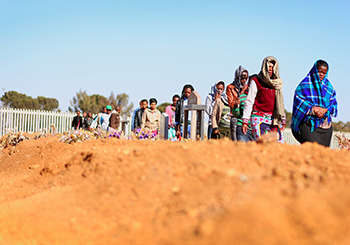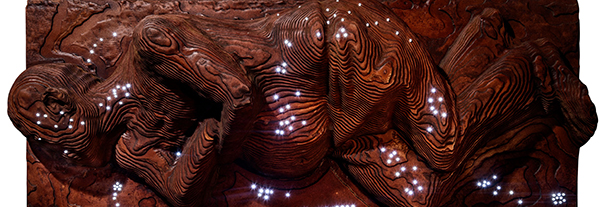
One of the photos that are on exhibition at the
Johannes Stegmann Gallery.
Photo: Supplied
Our human rights are enshrined in the constitution. This is exactly what the Art of Human Rights collection reflects, as it responds to the values and ideals instilled in the South African Bill of Rights.
This collection is currently on display at the Johannes Stegmann Art Gallery at the University of the Free State (UFS). The exhibition opened on 23 August and will run until 23 September 2017.
Work of renowned artists and poets on display
The collection features renowned artists and poets such as Virginia Mckenny, Busiswa Gqulu, Andries Botha, Kobus Moolman, and many more. There are also articles from prominent South Africans such as the late Ahmed Kathrada, Mike van Graan, Justice Edward Cameron, and former UFS Rector, Prof Jonathan Jansen.
Collection engages 27 clauses in Bill of Rights
The Art of Human Rights is a print portfolio which is an initiative of Art for Humanity (AFH). It is a non-profit organisation, based in Durban, which engages with cultural production, specifically in the visual arts, to promote human rights awareness regionally and globally.
Twenty-nine South African artists and 27 poets have created artwork for the collection. They engaged with the 27 clauses of the Bill of Rights by looking at socio-economic issues which is still prevalent in the democratic diaspora of SA. The collection addresses issues such as racism, poverty, poor education, and lack to efficient health care. These are all threats to our young democracy.
Johannes Stegmann Art Gallery hours (Bloemfontein Campus): Monday to Friday 08:30–16:30
